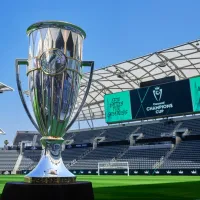Tucked away in the last paragraph of the press release about Copa America returning to the United States was arguably the biggest news of the day. Conmebol and Concacaf have decided to create a brand-new final four tournament between the best teams from Copa Libertadores versus Concacaf Champions League.
The club angle of the Conmebol-Concacaf partnership could be the most significant development for American soccer.
Consider the Seattle Sounders. For the first time in MLS history, there is a chance to play a competitive game against Real Madrid or Flamengo in the FIFA Club World Cup. Never mind the fact that Seattle is the champion of North America. Sounders fans get to watch their club take on major sides from across the globe in officially recognized competitions, not just friendlies.
The opportunity to play tougher opposition is what fans crave.
Incentivizing success
Similarly, the concept of the final four tournament between Conmebol and Concacaf, as well as the prospect of playing in the FIFA Club World Cup, incentivizes teams to prioritize the Concacaf Champions League more than they currently do. In fact, this Concacaf and Conmebol club competition could be more enticing than the Club World Cup. Rather than playing against the host nation from Qatar or a team from Oceania, the best teams in the Concacaf Champions League can play the best teams from South America.
If the final four competition had already been created, we could have seen the Seattle Sounders play Athletico Paranaense as well as Pumas versus Flamengo. Both of these would have been fascinating games.
Even then, think of other potential matchups. Club America against River Plate. Santos against LAFC. Toronto FC against Palmeiras. Atletico Peñarol against Monterrey.
Club competition is a win-win for Concacaf and Conmebol
The positives for both sides are clear. Concacaf clubs have a realistic chance for more significant games. Of course, to get to this stage, they have to perform well in the Concacaf Champions League. Success there would help the acceptance of intercontinental soccer in the United States.
Many soccer fans in the United States can recognize the names of clubs in South America. Boca Juniors and River Plate are massive. Same goes for Santos, Flamengo, Palmeiras and Corinthians. Seeing your ‘local’ team compete against those sides for a trophy can develop the fandom of continually growing MLS sides.
On Conmebol’s side, their success far exceeds that of North America for now. However, in addition to any monetary gain, this is another great way to get experience against new opposition. South American teams value the FIFA Club World Cup far more than the European teams. Conmebol teams see it as the top of the metaphorical mountaintop in the club soccer game.
The club competition with Concacaf and Conmebol could be a stepping stone to reach the top of that mountain. If the first iteration of the tournament can come about as soon as 2024, it can help develop soccer in North and South America.















